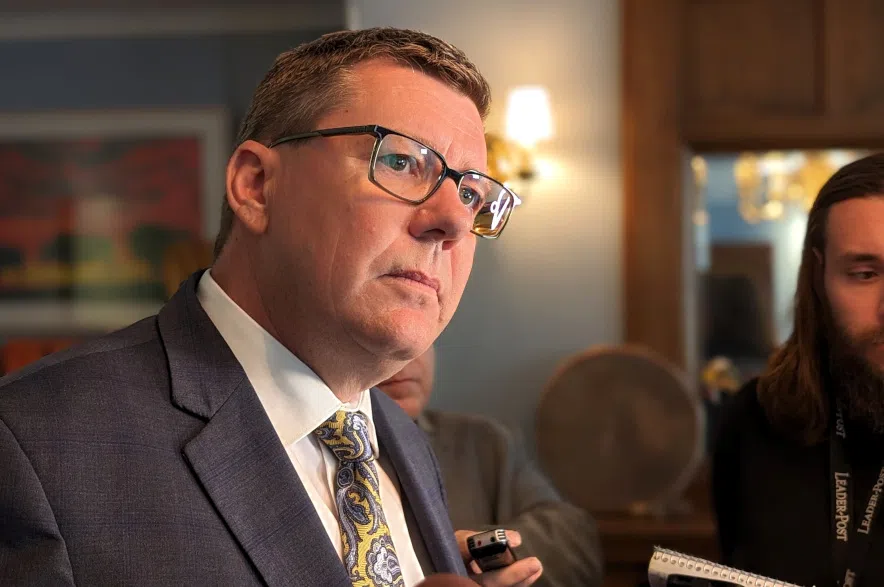The Sask. Party Government has talked about the possibility of an involuntary treatment program for people with addiction issues before, but on Tuesday, the premier gave the strongest suggestion yet that such a program could be on the way.
Premier Scott Moe was asked about new crime statistics showing Saskatchewan at the top of the provinces for crime rate and crime severity last year, which got the premier onto the topic of drugs.
He said the next discussion that’s happening, or will be happening across the country, is about involuntary treatment, what he called “compassionate care.”
“If there is a point where individuals have, unfortunately, found themselves in an addictive state where they just simply are unable to make their own short-term health-care decisions, and that’s where the compassionate care discussion comes around,” said Moe.
The premier said there would be more to say on the matter in the fall sitting.
Moe said his government is looking at enforced treatment, and that ministers have been out and having conversations about it to try to figure out a path forward for Saskatchewan.
“We’re talking to some of those that have been through this, with the lived experience from the family perspective and the individual perspective, and as well as talking to a number of others that offer supports in this space,” he said.
Moe pointed to Alberta, which brought in enforced care legislation earlier this year, and B.C., which started out opening involuntary care beds this year. He said it’s incumbent on everyone to have this conversation when others are moving in this direction.
“Where we land in various provinces might be slightly different, but it is a conversation that is happening now,” explained Moe.
Across the country, drug issues have been rising, bringing with them a rise in crime in Saskatchewan, a rise in health-care needs, and a rise in drug overdose deaths.
When the Alberta program was proposed, the Alberta Medical Association spoke out with concerns, saying current evidence doesn’t support that the benefits of involuntary treatment outweigh the risks. The Canadian Public Health Association also spoke out at that time, calling the proposed program coercive and ineffective, and positing that mandatory treatment doesn’t reduce drug-related harms.











